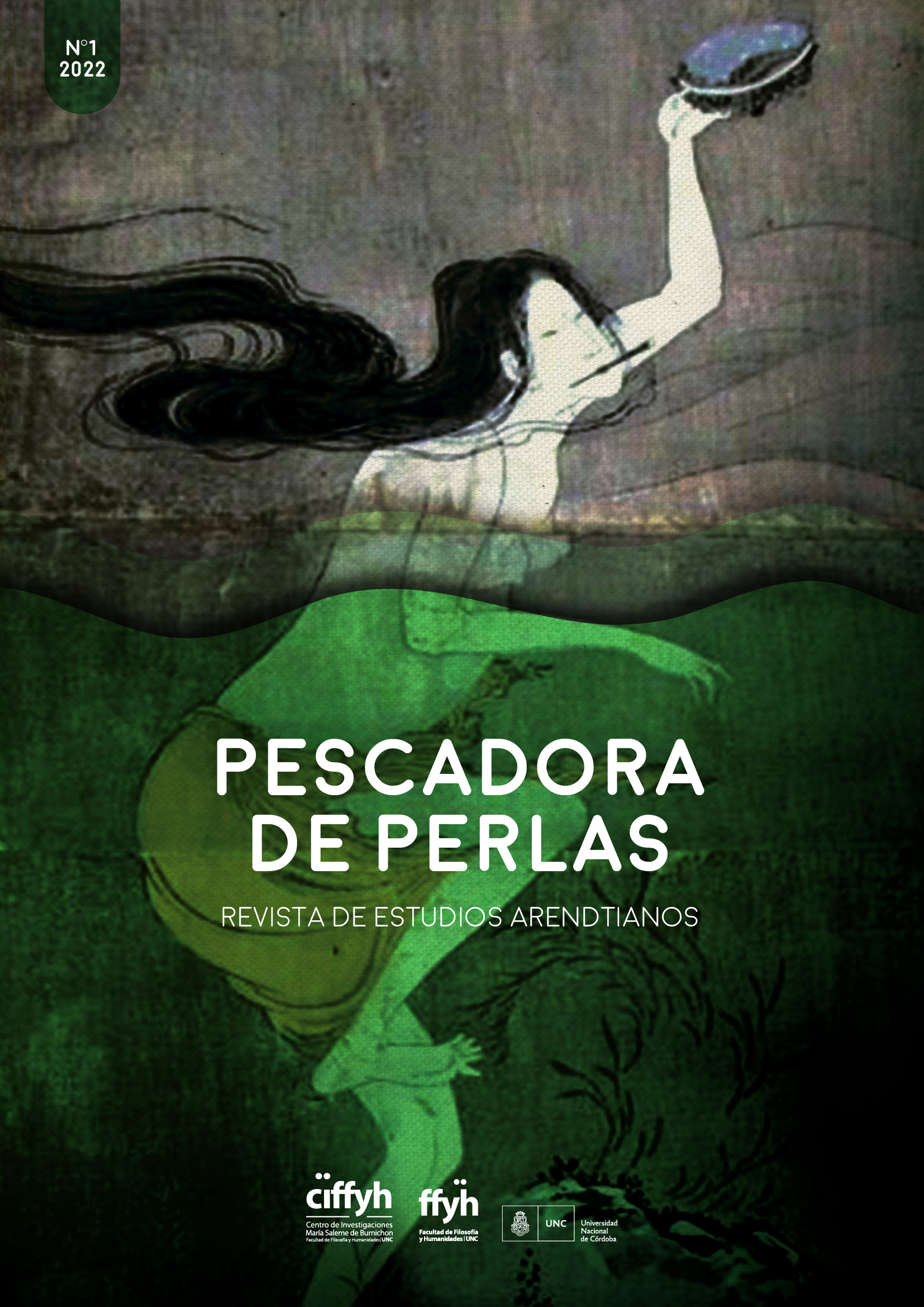Review of El concepto de amor en Arendt by A. Campillo. Madrid, Abada editores, 2019, 145 pp.
Keywords:
amor mundi, plurality, world, traditionAbstract
There is a hidden thread that runs through Arendt's work, that can be discovered from the affective register of love. According to the main thesis of Campillo's book, El concepto de amor en Arendt, there we find the center of gravity that articulates the German philosopher's philosophical thought and political theory. Campillo's analysis begins with the early Arendtian works, The Concept of Love in St. Augustine and Rahel Varnhagen, moving through The Human Condition, where love appears as an anti-political force and in tension with natality, and arrives at The Life of the Mind, where love only appears explicitly in relation to the Augustinian will. One of the most present sources, and central to Campillo's analysis, is the Denktagebuch, which serves as a guide to detect the counterpoints between the "love of the world" and the "love without the world" that underlie the "Arendtian phenomenology of love."
References
Arendt, H. (2001). El concepto de amor en San Agustín. Encuentro.
------------- (2016). La condición humana. Paidós.
------------- (2018). La vida del espíritu. Paidós.
------------- (2006). Diario filosófico. Herder.
------------ (2000). Rahel Varnhagen. La Vida de una Mujer Judía. Editorial Lumen.
Campillo, A. (2019). El concepto de amor en Arendt. Abada editores.
Downloads
Published
Issue
Section
License
Copyright (c) 2022 Ari Costamagna Fernandez

This work is licensed under a Creative Commons Attribution-NonCommercial-ShareAlike 4.0 International License.
Consultar los Avisos de derecho de autor. Aquellos autores/as que tengan publicaciones con esta revista, aceptan los términos siguientes:
- Los/as autores/as conservarán sus derechos de autor sobre el texto, y garantizarán a la revista el derecho de primera publicación, el cual estará simultáneamente sujeto a la Licencia de reconocimiento de Creative Commons: Atribución – No Comercial – Compartir Igual (by-nc-sa); no se permite un uso comercial de la obra original ni de las posibles obras derivadas, la distribución de las cuales se debe hacer con una licencia igual a la que regula la obra original.
- Después de la publicación, los trabajos podrán ser reproducidos por los autores en otros medios siempre que no se omita la indicación de la publicación original en esta revista. En este sentido, los autores/as podrán adoptar otros acuerdos de licencia no exclusiva de distribución de la versión de la obra publicada (p. ej.: al depositarla en un archivo institucional o publicarla en un volumen monográfico) siempre que se indique la publicación inicial en Pescadora de Perlas.
- La cesión de derechos de primera publicación de los/as autores otorga a Pescadora de Perlas autorización para que el trabajo sea colocado en el repositorio institucional de la Universidad Nacional de Córdoba y difundido a través de las bases de datos.



